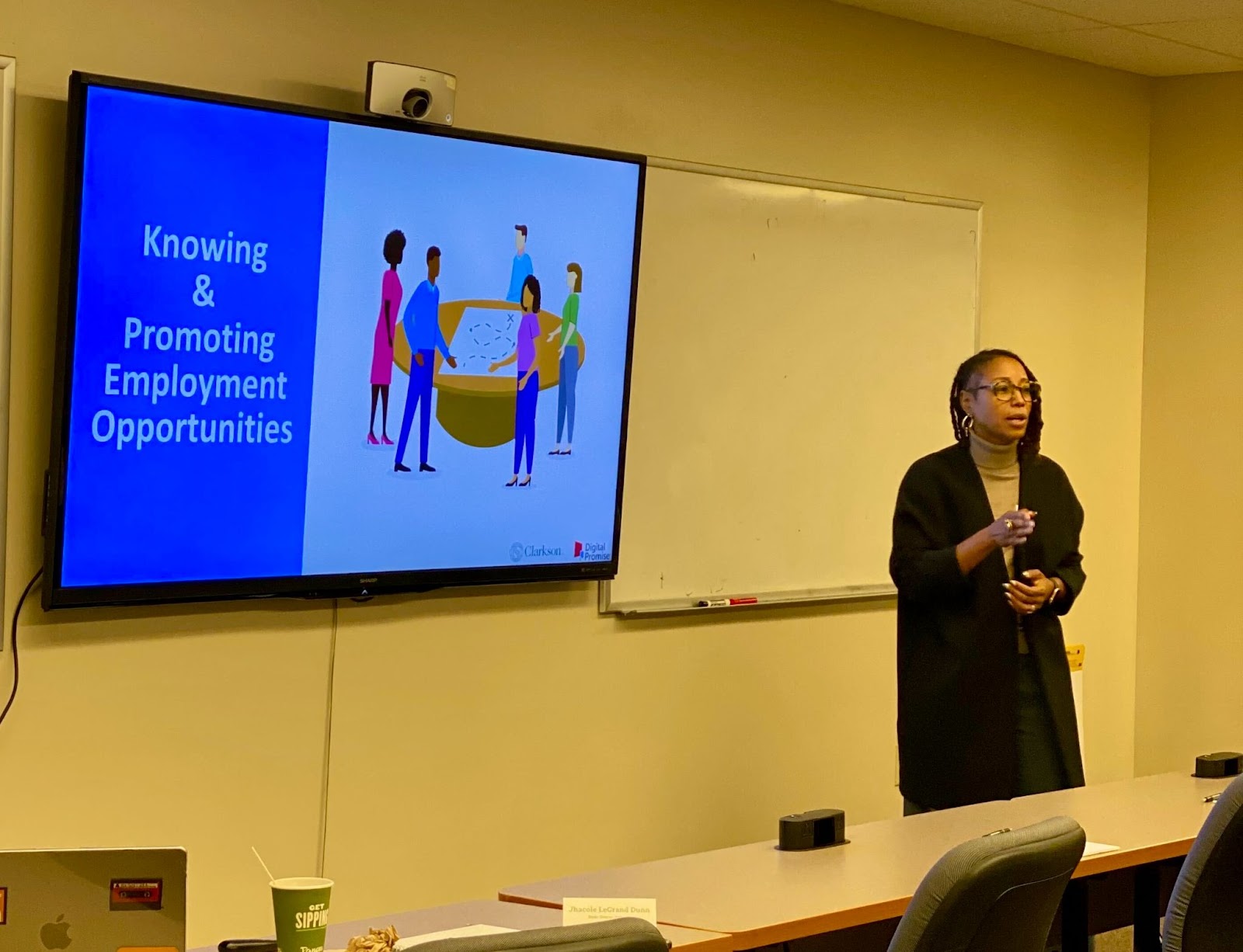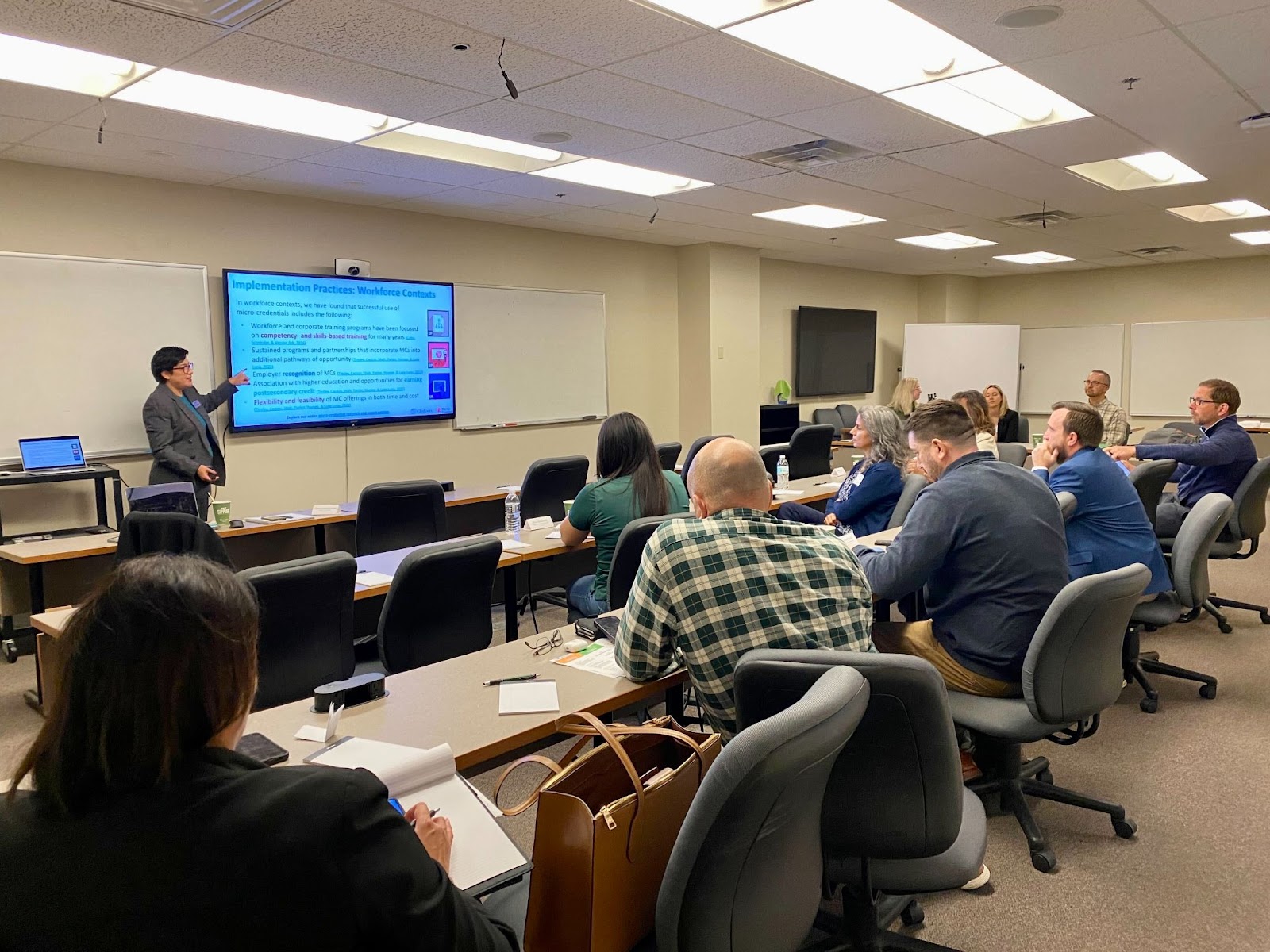
Additionally, Digital Promise supports a wide array of organizations who utilize micro-credentials in their professional learning programs. These partners are finding many successful use cases for our micro-credentials, including incorporating them into teacher-leader promotions, grow-your-own pre-educator pathways, remote/hybrid instruction upskilling, recertification, and more.
Partnerships are the foundation for our work and a gateway for many learners and workers to reskill or upskill in their careers. Below are four key ingredients for a successful micro-credential partnership.
One of Digital Promise’s core goals is enabling learners to achieve postsecondary credentials that offer well-being, agency, and economic security. We recently partnered with the Local Initiatives Support Corporation (LISC) through their Family Income & Wealth Building Department, which dedicates resources to assist low- to moderate-income individuals in addressing various aspects of their financial well-being, including securing stable employment, managing finances, establishing strong credit, and saving for educational and retirement purposes. LISC developed a stack of micro-credentials for their Financial Opportunity Center® (FOC) partners. FOC staff will earn micro-credentials by demonstrating career and financial coaching competencies that help their participants reach their goals.
Today, it is imperative for educators to be able to navigate and facilitate difficult conversations in school settings. Over that past year, Digital Promise partnered with the University of South California Shoah Foundation to develop a micro-credential stack focused on building educators’ skills to counter antisemitism and address conspiracy theories and Holocaust denial in the classroom. This initiative comes at a critical time, considering an audit by the Anti-Defamation League showing that antisemitic incidents in the United States rose 36% in 2022 and have reached an all-time high.
This important partnership is just one piece of a more expansive effort: UNESCO and the OSCE Office for Democratic Institutions and Human Rights (OSCE/ODIHR) have partnered with University of South California Shoah Foundation, the American Federation for Teachers (AFT), the American Jewish Committee, and Echoes & Reflections, with support from Shine a Light, to offer professional development for educators designed to develop knowledge and skills to address antisemitism in educational spaces effectively.
Clarkson University was recently awarded a grant from the New York State Office of Strategic Workforce Development for their “Advancing Industry with Micro-credentials” (AIM) project. The goal of this two-year grant project is to address critical workforce development challenges and facilitate the transition of un/underemployed New Yorkers into good jobs within the advanced manufacturing, construction, and clean tech industries.
The Digital Promise Pathways & Credentials team recently joined Clarkson to facilitate design thinking sessions with a cross-section of industry, workforce development, and higher education professionals to identify: current or upcoming opportunities for un/underemployed individuals; gaps in services and barriers to access; common knowledge and skills required for the roles with partner employers; and strategies for engaging marginalized/underrepresented individuals in the region. The findings from these workshops will inform the design of instruction to support learners in successfully earning micro-credentials involved in these career pathways.


Earning a micro-credential is a highly personalized process that includes the learner identifying a topic that will support their professional practice and demonstrating their competency with original evidence and artifacts. This aligns with Learning Forward’s Standards for Professional Learning, and also fits three research-backed interventions identified for enhancing learner interest: contexts evoking prior individual interest, problem-based learning, and enhancing utility value (Harackiewicz, J. M. et al, 2016).
In South Carolina, the Midlands Community Development Corporation (MCDC) and Voorhees University were awarded a LIFE2/TSL federal grant that focuses on recruiting and retaining educators as well as supporting, improving, and increasing teacher efficacy, and building the capacity of teachers and school leaders. As a component of this initiative, Digital Promise will provide micro-credential assessment coupons to each educator in the Calhoun County Schools and Orangeburg County Consolidated Schools districts to earn up to three micro-credentials.
With these four key ingredients, micro-credential issuers and Digital Promise are able to support historically and systematically excluded learners at all stages of their lives, adult learners in the workforce, and post-secondary learners. The affordability, flexibility, and personalization that micro-credentials provide create robust opportunities for learners and workers to reskill or upskill to stay current with competencies needed for career success.
Interested in learning more or partnering with us? Learn more about our work in micro-credentials. Please contact us at microcredentials@digitalpromise.org.
Harackiewicz, J. M., Smith, J. L., & Priniski, S. J. (2016). Interest Matters. Policy Insights from the Behavioral and Brain Sciences, 3(2), 220-227. doi:10.1177/2372732216655542